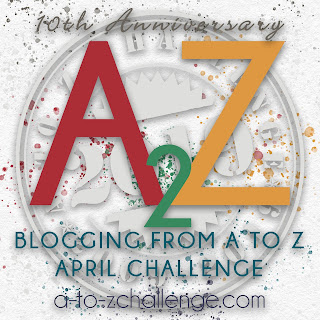

What is a “marginalized writer” and what does #OwnVoices mean?
A marginalized writer is someone who belongs to a marginalized group, such as a person of color, a person who identifies as LGBTQ+, a person with a disability, etc. #OwnVoices is a hashtag to signify that the marginalized writer is writing about a character with an identity that they share. (Ex. A Filipino writer creating a Filipino character.)
Do marginalized writers get preferential treatment in publishing?
No. In certain categories (Mainly YA and MG) marginalized writers may be considered more “interesting” in the slushpile, which may grab an agent’s attention depending on what they are looking for. But simply being marginalized will not guarantee a book deal. If the book is something that does not resonate with the agent as something they can sell or it is not up to standard, it will be rejected just like everybody else’s. In short, being marginalized and writing an #OwnVoices book may intrigue the agent into reading the query, but it does not guarantee representation by any means.
Can non-marginalized writers write marginalized characters?
Yes! And they are encouraged to do so, particularly in the YA and MG categories. There is a debate, however, in how a non-marginalized writer is “allowed” to write their characters. Some marginalized writers believe that it is okay for a white cishet author to include characters who are not a part of their group as long as they do not attempt to write about the experience of what it is like. (For example, there is a huge difference between writing a positively-written supporting Black character and writing a character like Starr from “The Hate U Give.”) These writers claim that the stories of people like them should be written by them first and foremost, and that white cishet writers are “stealing” opportunities for marginalized writers to share their experiences through stories.
Some marginalized writers believe that people can write whatever they want as long as they do the research, while others think that white cishet writers should not be permitted to create marginalized characters at all.
It is an ongoing debate that, in today’s social climate, does not seem to be settled any time soon.
Why are some marginalized writers wary about non-marginalized writers portraying characters who are different than them?
At the end of the day, it goes back to white cishet writers being favored in the previous generation’s publishing world. People in all marginalized groups have struggled to get published since pretty much the beginning of time and have had to sit by while white cishet writers mishandle portrayals of characters like them over and over again. It is a problem that is still happening to this day, which, in part, caused many agents to look for #OwnVoices works.
Marginalized readers have seen people like them being written in stereotypical and offensive ways, which only reinforced the public’s perception of them. Many of us are tired of other people telling our stories and getting it wrong.
What can I do to write a better marginalized character?
Before beginning to write a character and the plot to throw them in, do as much reading as you can about their identity. Talk to members of that group either in real life or online. Consult a marginalized critique partner or hire a sensitivity reader to go over your first draft with you so that you can be aware of any harmful elements in your story. Write a story in which marginalized readers will see themselves in your characters.


7 comments:
One might argue that literature has always been about marginalized characters, and our morbid fascination with them.
Aren't we all marginalized in some aspect? That's the human experience. There's always some part of us that no one else can understand. I think it's absolutely ridiculous to exclude anyone from writing anything they want. By excluding whomever from writing whatever they want is marginalizing them. More importantly, these groupings and exclusions are what keep people marginalized. "Marginalized" is just another way to categorize and separate people. We're all basically the same. We're all human, and should accept each other as such. What better way to end marginalization of any and all people than to learn about and understand each other? Segregation and dismissing others can only lead to misunderstandings and prejudices.
That's both interesting and useful, thankyou.
But I would agree with Nobbinmaug to some extent. I definitely don't fit the stereotype of white, over 60, middle class English women, for example :) I think an issue OwnVoices could help all writers with is to make sure that they get the marginalised group of concern 'correct' rather than stereotyped. 'correct' may in itself may need to be more diverse than we think!
While your post is about marginalized writers, I believe it applies to any case of culture appropriation. It is okay for me to write my stories about a location as long as I don't pretend to be indigenous to the area or try sounding "too local" in topics I have not experienced.
http://gail-baugniet.blogspot.com/
(AtoZ Theme: very short stories/various genres)
M is for: Maniwaki Wild Rice Harvest
Great post! It's important to be thoughtful and considerate with the experiences of all the people we create in our works. @mirymom1 from
Balancing Act
Great piece. I have an e-friend who writes #ownvoices books and still gets angry reviews because one person's experience in a group doesn't always look like another person's. Like Jemima pointed out about "correct" being even more diverse than we think :-)
Ronel visiting from the A-Z Challenge with Music and Writing: So Many Amazing M's
Interesting. Not being actively looking for a publisher I never heard of#ownvoice before. Makes sense to me.
www.findingeliza.com
Post a Comment